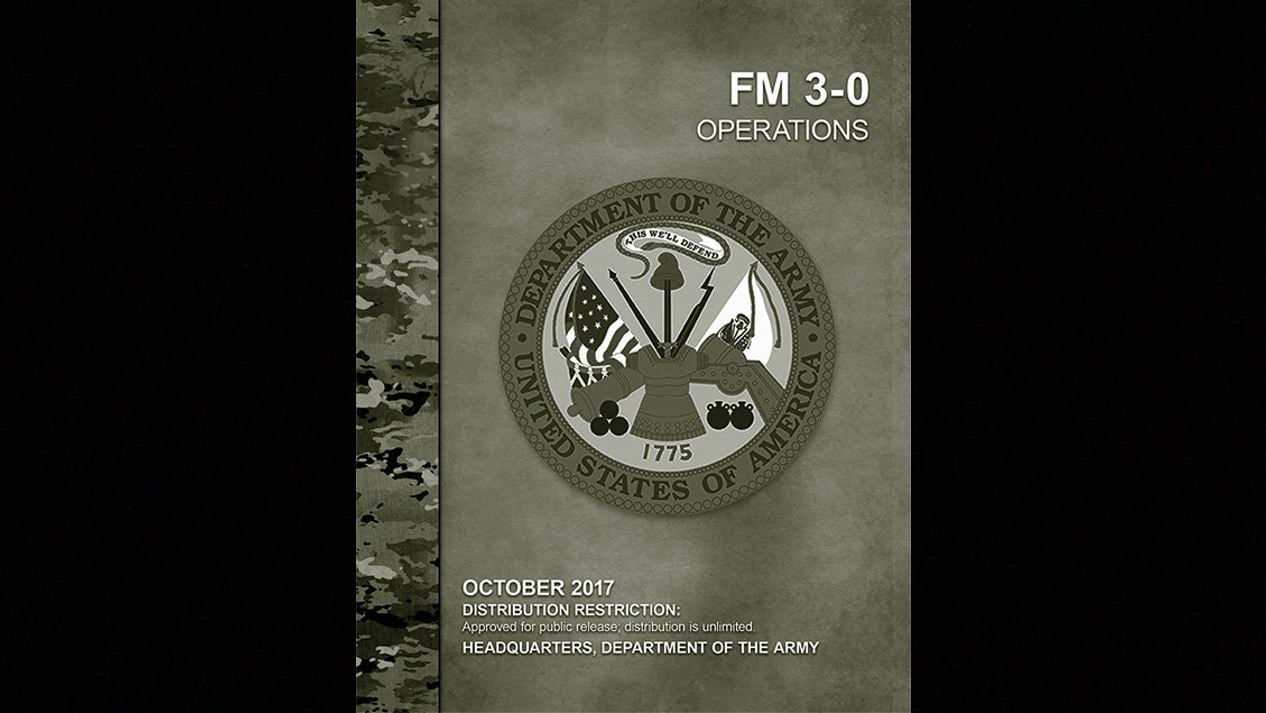Professor Trent Lythgoe was well familiar with the slog of trying to read Army doctrinal publications.
Before becoming a professor at the Army’s Command and General Staff College, he’d served for 22 years as an aviation officer.
But he didn’t realize just how dense and unwieldy Army prose was until he subjected it to the Flesch Reading Ease test, an analysis that generates a readability score from 1–100.
The thesis of the Army’s Field Manual 3-0 scored just 9.3 on the test, putting it in the bottom 10% for ease of reading. Army Doctrinal Publication 6-0 didn’t do much better, with a score of 14.9. These scores meant the material was best understood by those with college or post-graduate degrees.
RELATED

By comparison, an academic article describing the discovery of the Higgs boson particle by theoretical physicist Brian Greene scored 50.6% on the test ― the equivalent of a tenth-grade reading level.
The contrast was a shock and a wake-up call for Lythgoe: a sign that something needed to change.
“Maybe we can’t write about quantum physics at tenth-grade level, like [Greene] does,” Lythgoe said. “But maybe, maybe we can write about multidomain operations at a high school level. I think that’s in the realm of the achievable.”
Lythgoe’s ongoing study of Army writing and its shortfalls ― undertaken in the hope of introducing new tools to make soldiers better communicators ― comes as a new project under the direction of the chief of staff of the Army aims to revitalize the service’s professional publications and encourage more soldiers to write.
Another mini-analysis by Lythgoe may help explain why clear and simple writing is such a rarity in the Army. Using the same doctrinal publications from the Flesh test, he tallied up “zombie nouns,” or nouns created from other parts of speech.
“In Army writing, zombie nouns often come from verbs,” he wrote in a LinkedIn post about his findings. “For example, “plan” becomes “planning,” and “prepare” becomes “preparation.” While, he noted, these words are not inherently wrong, overuse leads to “wordy, abstract writing.”
In Lythgoe’s analysis, the Army’s FM 3-0 Operations section was 12% zombie nouns. ADP 6-0 Mission Command had 11%. Greene’s article on the Higgs boson, by comparison, had just 4%.
One sentence from FM 3-0 illustrates the problem: “Systems warfare is the identification and isolation or destruction of critical subsystems or components to degrade or destroy an opponent’s overall system.”
The zombies in this sentence ― identifications, isolation, destruction ― “cannibalize” the verbs they come from and leave the sentence cluttered and abstract, Lythgoe explained in a Substack post.
This is more than just a style problem, Lythgoe argues. Unnecessarily dense writing, he said, can also hide weak or undeveloped ideas.
“It’s this very dense style of writing that, I think, tries to lend itself credibility by being dense, and by using big words,” he said. “I think removing that kind of scares people a little bit. If I strip away all the embellishment, and all the zombie nouns, and I just say, with verbs and nouns, what we’re doing, do I still have good ideas? And that’s the whole point.”
Lythgoe has an eight-page article with his initial findings pending publication: “Army Writing and the Zombie (Noun) Apocalypse.”
Beyond diagnosing the problem, though, Lythgoe wants to help soldiers write better.
At Command and General Staff College, which provides post-graduate degrees to military officers, he already has helped develop a new writing guide. In the coming year, he said, the college is rolling out a new writing skills test that includes both a self-assessment and an external evaluation to help students better understand their strengths and shortfalls.
“Longer-term, it’s just expanding on this research and getting a better idea of why Army writing is difficult, both from a skill standpoint and a culture standpoint, and then how can we make it better,” Lythgoe said.
As his research continues, a new Army initiative known as the Harding Project is working to make the service’s roughly 18 professional journals better and smarter.
Headed up by Maj. Zachary Griffiths, a special assistant to Army Chief of Staff Gen. Randy George, the project aims to make the journals a go-to and accessible resource by, for example, digitizing decades’ worth of paper archives, and get more soldiers contributing as writers and editors.
Launched in September 2023, it’s named for Maj. Edwin “Forrest” Harding, who was nicknamed “the poet laureate” of the Army’s 15th Infantry Regiment, and led a 1934 journal revamp.
As part of the project, Harding’s team is producing a series of unit how-to guides about writing articles and professional discourse. They’re in close communication with Lythgoe and keeping an eye on work to improve military writing at Command and General Staff College.
“We can look into whether that should be scaled across the whole Army,” Griffiths told Army Times. “We can also look into doctrine and regulations, and just see if there’s an opportunity to emphasize the importance of education in writing.”
Behind the project is the idea that soldiers at all levels do have good ideas worth sharing, they just need the skills and the confidence to communicate them clearly in writing.
“I think everyone knows there’s really important insights that come from all levels,” Griffiths said. “And so the key is to help the Army gather those insights.”
Hope Hodge Seck is an award-winning investigative and enterprise reporter covering the U.S. military and national defense. The former managing editor of Military.com, her work has also appeared in the Washington Post, Politico Magazine, USA Today and Popular Mechanics.




